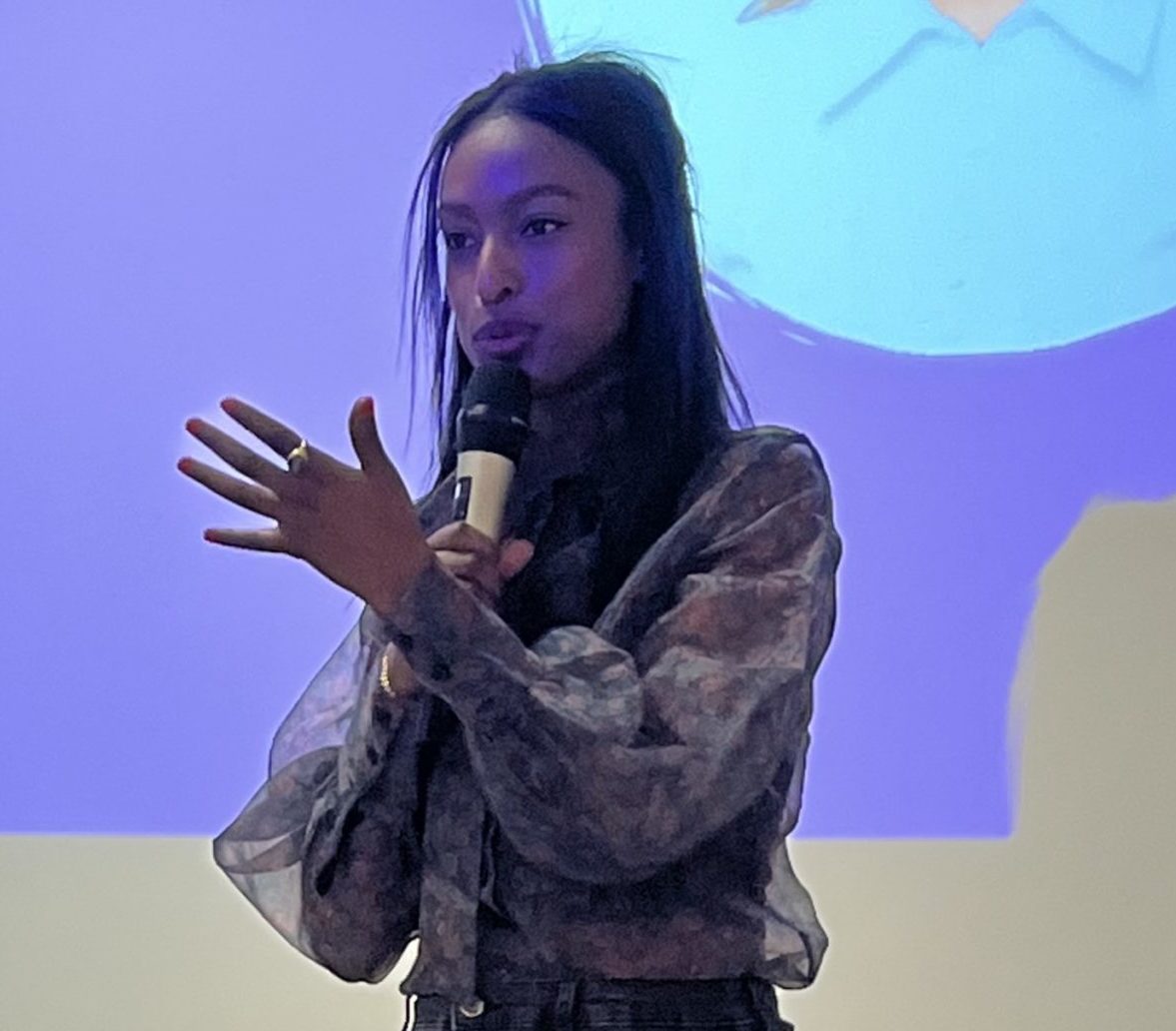Veronica Almedom is a poster child of successful immigration. A duo Eritrean and Swiss citizen, she was born in Italy, and grew up in Switzerland where she permanently resides. Her parents are some of the earliest victims of Eritrea’s cycles of violence. When Eritrea’s war of independence peaked in the early 1980s, they escaped the country as unaccompanied minors, wandering through Sudan, Saudi Arabia, before making the hazard journey across the Mediterranean into Europe. There, they crossed first to Italy, and finally, to Switzerland, where they settled first as refugees, and later, as permanent residents.
It is this convoluted immigration background that would later inspire Veronica’s future career. Her subsequent visits to Asmara, and her experience with other Eritreans struggling to escape the country’s authoritarian highhandedness left a big impression on her:
“Although I was only 12 years when I first visited (Eritrea), I could tell very clearly how privileged I was to grow up in a country like Switzerland. The next visits in 2004 and 2010 only served to strengthen my sense of responsibility to do something,” she says.
Veronica Almedon Tweet
Veronica’s most enduring memory was the agony of Eritrean girls and boys her age being forcefully conscripted into the country’s national service. Adopted as official national policy in 1995, Eritrea’s National Service Proclamation mandates all Eritreans aged between 18 and 50 to undertake compulsory military training for at least six months. The policy, designed to ensure sufficient personnel numbers for the country’s military has been widely criticized for its human rights excesses, forcing many young people into exile.
It was an issue Veronica was determined to challenge once back in Switzerland. In 2012, she started a virtual campaign dubbed “stop slavery in Eritrea,” where she connected with like-minded Eritreans around the world and invited witness to provide testimonies of the policy’s human rights excesses. With the campaign gaining momentum over the years, Veronica started mobilizing institutional stakeholders to join the campaign. In 2016, her and her group organized a 25,000-strong match in front of the UN Human Rights Council in Geneva, demanding more resolute international action about human rights in Eritrea.
Although the protestors did not achieve their ultimate target of having Eritrea referred to the UN Security Council, they succeeded in pressuring the Human Rights Council to renew the mandate of the UN Commission of Inquiry on Human Rights in Eritrea for another year.
For Veronica though, the campaign for the dignity of Eritreans was of one struggle but many fronts. The other front was targeting European migration policies, which were shutting out migrants and condemning thousands to cold deaths on the Mediterranean.
“Governments across Europe are stopping migrants and refugees from crossing the Mediterranean Sea, despite the horrors in Libya. So you have a situation where on one hand, governments like the one in Eritrea are championing egregious national policies that are driving thousands into exile, and on the other Europe is building walls to shut those looking for asylum out. So, the challenge is incommensurable, especially for refugees who need protection,” she says.
Veronica Almedon Tweet
“Governments across Europe are stopping migrants and refugees from crossing the Mediterranean Sea, despite the horrors in Libya. So you have a situation where on one hand, governments like the one in Eritrea are championing egregious national policies that are driving thousands into exile, and on the other Europe is building walls to shut those looking for asylum out. So, the challenge is incommensurable, especially for refugees who need protection,” she says.
Her work has not gone unrecognized. In 2016, Veronica was appointed to the Swiss Federal Commission on Migration, one of the youngest members to be appointed so, by the Swiss Federal Council. Here, she advises the Swiss government on migration policy and is currently serving another term. She has also since set up an NGO – Information Forum for Eritrea (IFE), where she seeks to humanize the plight of Eritreans and Eritrean refugees in Eritrea, Europe, and all over the world.
Last year, Veronica was among the 36 leaders from 24 countries selected to join the Obama Foundation Leaders Europe program. She says it (the selection) was such an important validation of her work.
Asked what continues to motivate her, she says: “The search for the rule of law and the conviction that all people deserve to experience their full potential. I want to see Eritreans given reparation for the grave crimes that they have been subject to. But I also feel extremely privileged to have been raised in Switzerland thus spared of all the horrors my people have been experiencing. So, I feel a sense of duty and responsibility.”

